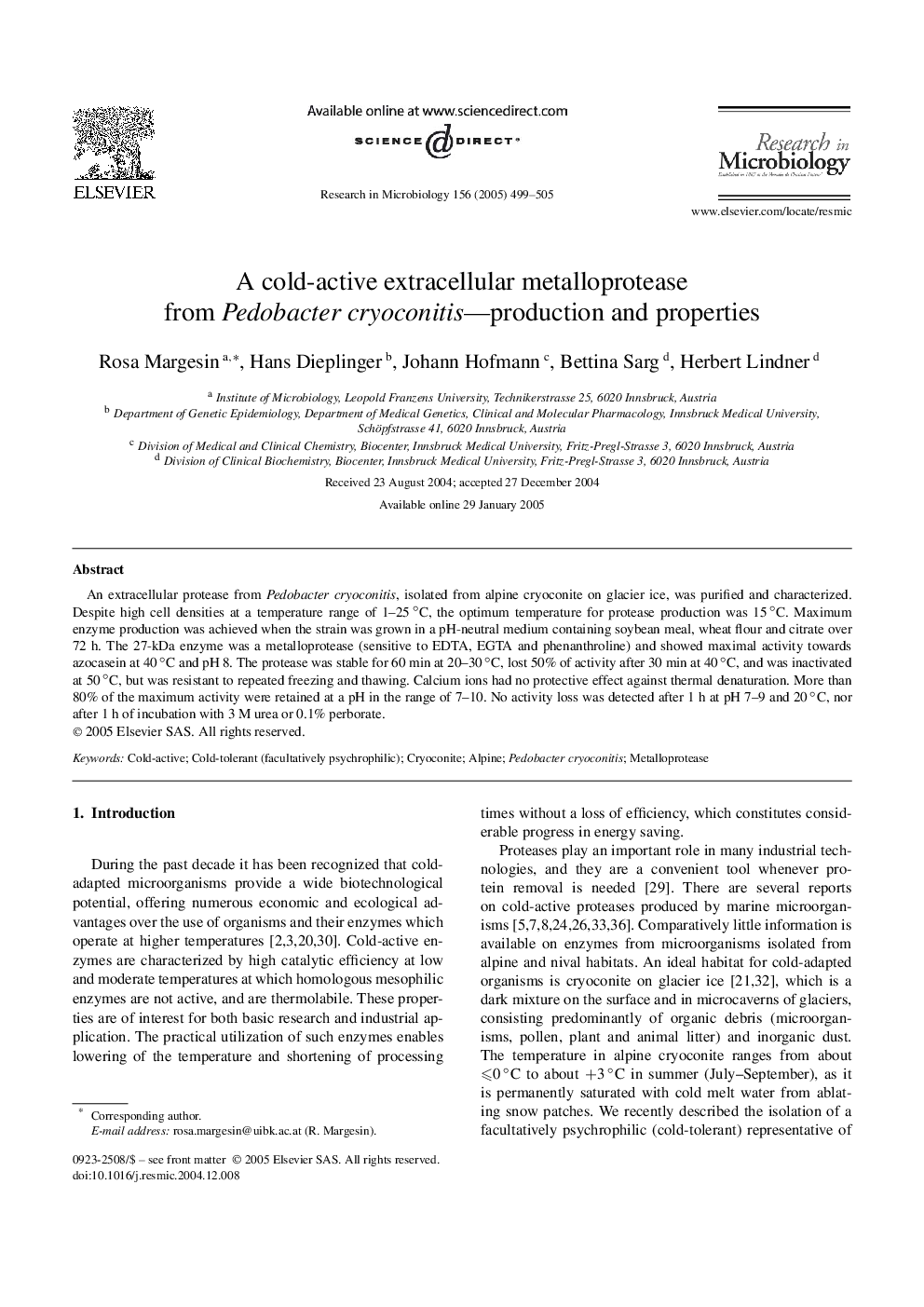| Article ID | Journal | Published Year | Pages | File Type |
|---|---|---|---|---|
| 9440145 | Research in Microbiology | 2005 | 7 Pages |
Abstract
An extracellular protease from Pedobacter cryoconitis, isolated from alpine cryoconite on glacier ice, was purified and characterized. Despite high cell densities at a temperature range of 1-25â°C, the optimum temperature for protease production was 15â°C. Maximum enzyme production was achieved when the strain was grown in a pH-neutral medium containing soybean meal, wheat flour and citrate over 72 h. The 27-kDa enzyme was a metalloprotease (sensitive to EDTA, EGTA and phenanthroline) and showed maximal activity towards azocasein at 40â°C and pH 8. The protease was stable for 60 min at 20-30â°C, lost 50% of activity after 30 min at 40â°C, and was inactivated at 50â°C, but was resistant to repeated freezing and thawing. Calcium ions had no protective effect against thermal denaturation. More than 80% of the maximum activity were retained at a pH in the range of 7-10. No activity loss was detected after 1 h at pH 7-9 and 20â°C, nor after 1 h of incubation with 3 M urea or 0.1% perborate.
Related Topics
Life Sciences
Immunology and Microbiology
Applied Microbiology and Biotechnology
Authors
Rosa Margesin, Hans Dieplinger, Johann Hofmann, Bettina Sarg, Herbert Lindner,
